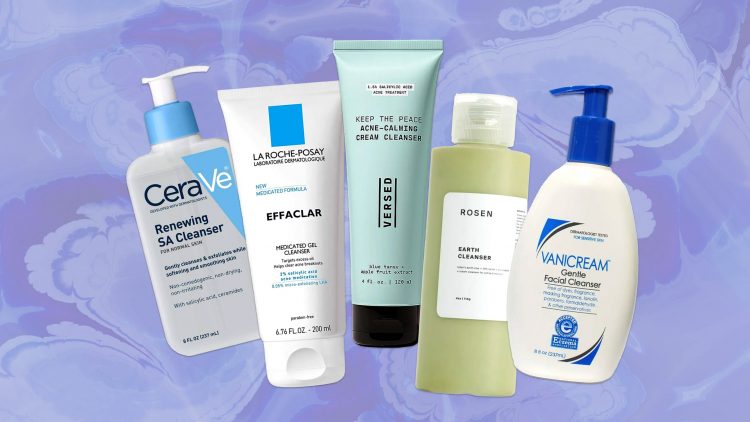For blemish-prone skin, a great skin-care regimen starts with one of the best face washes for acne. After all, everyone, regardless of their skin type or concerns, needs a good cleanser as the cornerstone of their skin-care routine. But we get that finding a proper face cleanser for targeting whiteheads, cystic acne, and blemishes, so we (and our board-certified dermatologist friends) are here to assist. Acne-prone skin, in particular, should laser-set on a cleanser that unclogs pores, gently exfoliates, and doesn’t exacerbate existing acne.
Claire Chang, MD, a board-certified dermatologist in New York City, has a key guideline to abide by. She always recommends gentle cleansers over harsh soaps — especially those with physical exfoliants — to clear the skin of dirt and excess oil. Don’t aggressively rub, scrub, or over-cleanse either (twice a day, morning and night, is perfectly fine) to avoid worsening your skin’s condition and encouraging scarring.
Chang tells us to look out for two powerhouse ingredients: salicylic acid, a type of beta hydroxy acid (or BHA) that “goes deep into the pores to clear them from excess oil and dirt” and benzoyl peroxide, which guards against inflammation and kills acne-causing bacteria. Milder ingredients include tea tree oil or green tea, which also provide skin-soothing benefits.
David Kim, MD, a board-certified dermatologist based in New York City, keeps it real when it comes to face washes marketed toward acne-prone skin. Cleansers are naturally washed-off so, while helpful, they’re not the most important aspect of an acne-targeted routine as, say, a more intensive spot treatment.
As someone who personally went through two rounds of Accutane, Kim strongly believes that a patient on a good prescription topical or systemic regime can use any cleanser, including those that are not specifically designed for acne. But he adds that “if a patient has very mild acne and is only using over-the-counter (OTC) topicals, adding an acne-specific cleanser can be helpful.”
As for follow-up tips, always apply any acne medications immediately after cleansing to allow the active ingredients to really work their magic, which Chang says can take up to six to 12 weeks of continued daily use. And never forgo moisturizing. Rather than clogging your pores, a lightweight cream will ensure your skin stays properly hydrated — especially if you’re using a drying topical medication — and protected. Kavita Mariwalla, MD, a board-certified dermatologist based in West Islip, New York, recommends avoiding layering retinoids, as well as products that contain fragrance and/or alcohol, on top of acid-laced cleansers — because these pairings can lead to dryness and irritation.
With the help of the aforementioned dermatologists, we rounded up 19 of the most effective cleansers for acne-prone skin that’ll help prevent future breakouts and won’t further irritate your skin. Gently rub, rinse, and repeat with these intensive acne cleansers to unclog inflamed zits and balance oil production with ease.
Source by www.allure.com


